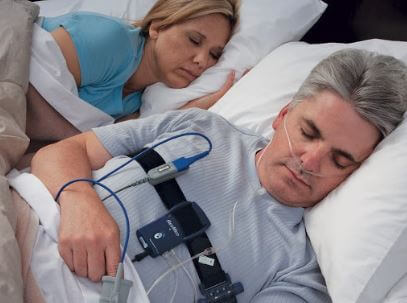Why Test for Sleep Apnea?

Understanding Sleep Apnea
Sleep apnea is a condition characterized by interruptions in breathing during sleep, leading to fragmented rest. These interruptions, often unnoticed by the sleeper, can cause significant health implications if left untreated. It disrupts the body’s natural sleep cycle, preventing adequate physical, cognitive, and emotional recovery.
Importance of Diagnosis
Diagnosing sleep apnea is crucial due to its potential health risks. Untreated sleep apnea has been linked to shortened lifespan, increased risks of high blood pressure, heart disease, and stroke. Additionally, it contributes to conditions like type 2 diabetes, obesity, cognitive impairment, and heightened accident risks due to daytime drowsiness.
Signs and Symptoms
Recognizing the signs of sleep apnea is essential for timely diagnosis:

Loud Snoring
Especially when followed by silence and gasps.

Pauses in Breathing
Noticed by a bed partner.

Daytime Fatigue
Despite seemingly adequate sleep.

Morning Headaches
Resulting from disrupted sleep patterns.

Mood Changes
Including irritability and depression.

Difficulty Concentrating
Affecting daily activities.
Benefits of Testing
Testing for sleep apnea allows for:
- Accurate Diagnosis: Identifying the severity and type of sleep apnea.
- Tailored Treatment: Providing targeted interventions, such as Continuous Positive Airway Pressure (CPAP) therapy or lifestyle changes.
- Improved Health Outcomes: Enhancing sleep quality, reducing health risks, and improving overall well-being.
Treatment and Management
Effective treatment strategies can reverse the negative health impacts of sleep apnea:
- CPAP Therapy: Uses air pressure to keep airways open during sleep.
- Oral Appliances: Adjust jaw position to prevent airway blockage.
- Lifestyle Changes: Weight loss, regular exercise, and avoiding alcohol and sedatives before bed can help.
Take Action
If you or someone you know exhibits symptoms of sleep apnea, seeking professional evaluation and testing is essential. Early detection and treatment can significantly improve sleep quality, reduce health risks, and enhance quality of life. Don’t let sleep apnea go undiagnosed—take steps today to safeguard your health and well-being.

